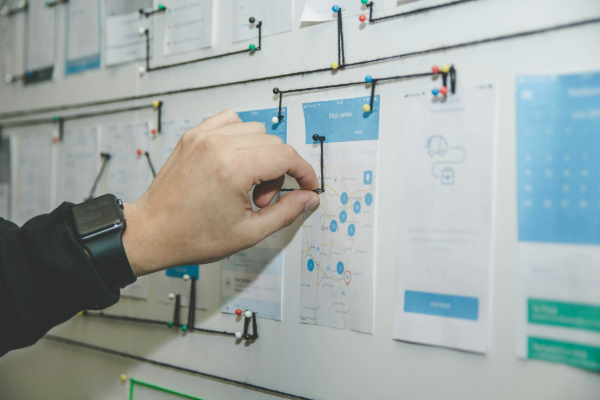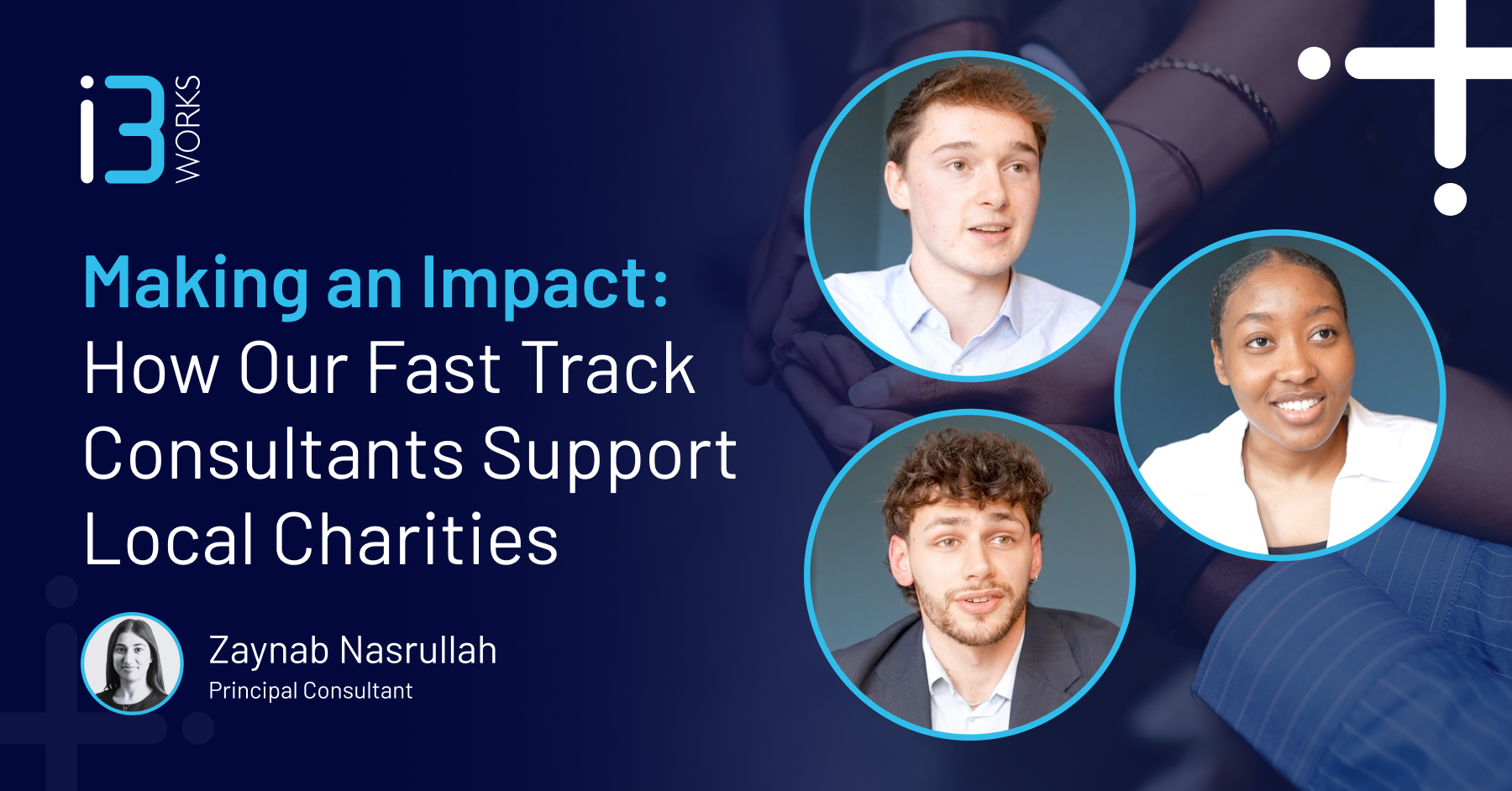One of the key elements of our Fast Track Consultant (FTC) programme is the Charity Project. It’s an opportunity for our FTCs to own and manage their own project as well as support a local charity. These projects, designed and delivered entirely by our Fast Track Consultants, provide support to local charities while allowing our consultants to develop key skills in project management, teamwork, leadership, and problem-solving.
Each year we identify a local charity in need of support. The selection process is rigorous and thoughtful, ensuring that the chosen charity aligns with the i3Works’ values while providing an opportunity for meaningful impact. Once the charity is selected, our current FTCs take full ownership of the project, from planning and execution to delivery and handover, with support from previous FTC cohorts
The projects vary widely, depending on the needs of the charity and the skill sets of the consultants. Some projects focus on building new databases for storing information, while others involve mass migration of tooling. With all projects our FTCs undertake, our goal is always to create a lasting, positive change for the charity and the community it serves.

How the Previous Charity Projects Have Helped
The charity projects aim to support a local charity with a project they haven’t had the time, or technical knowledge to complete, providing tangible benefits and bringing a positive change to the charities and communities they serve. Here are some of the ways these initiatives make a real difference:
OTR is a mental health social movement by and for young people aged 11-25 living in Bristol and South Gloucestershire. Our current FTCs are supporting OTR with migration of their data, supporting their need to integrate with wider stakeholders.
For the last 20 years everyFAMILY has been providing a supportive community for families within Bristol. They believe strong families build strong futures, so offer holistic support, addressing the emotional, social and practical challenges families face, in addition to providing top quality childcare. FTCs reviewed and analysed the existing onboarding process, made adjustments to make the processes more effective and focused on tailored knowledge articles to ensure a smooth process overall.
Feed the Homeless is a grassroots charity that has provided frontline homelessness support in Bristol since February 2016. Their aim is to ensure that hot nutritious meals can be provided to the homeless and rough sleeping community in Bristol. For FTH, our FTCs solved an issue the charity was facing in being tied to a paper-based system to accurately record data, in lieu of a better online solution. Our FTCs designed a web-based application that could be updated in real time and produce graphs to display data.
Step Together help people who are excluded from society to participate in volunteering and build a more positive future for themselves. All clients can be described as facing multiple disadvantages, which is defined as facing ‘two or more issues affecting physical, mental, social or financial wellbeing’. The end objective for the FTC’s project with Step Together was to improve the quality of funding bids, increasing future funding to enable Step Together to grow their support services.

Our Process
The charity project is a structured, yet dynamic, process that allows consultants to experience the full project lifecycle whilst being flexible to the charity’s evolving needs. Below is an overview of the steps we take:
Step 1: Charity Selection and Needs Assessment
We start off by researching local charities and selecting one who has a need for change, which can be delivered within the FTC’s skillsets. Once a charity is selected, there will be several sessions to really understand the challenges and determine where they can add the most value. A key theme throughout any charity project is ensuring to keep communications open and timely to keep up with changing landscapes.
Step 2: Project Planning
Once a clear need is identified, consultants develop a comprehensive project management plan. This includes setting objectives, defining key deliverables, assigning roles, and establishing timelines. Informed planning is crucial to ensure the project stays on track and delivers meaningful results. This plan is shared with SMEs within i3Works, to give the FTCs not only the support needed but also provide feedback.
Step 3: Implementation
With the approved plan in place, FTCs begin delivery. This may involve hands-on work such as attending charity offices, data audits or assessment of the ‘as-is’. Throughout this stage, consultants practice adaptability and problem-solving as they navigate real-world challenges, like charities being under resourced or the end product / goal needing adjusting to align to latest pressures.
Step 4: Delivery and Handover
The final stage involves delivering the project’s outcomes to the charity. Whether it is a data audit, an upskilling exercise, or a new charity database, the handover is a moment of celebration and reflection. The FTCs will ensure that their work is sustainable, leaving the charity with resources or strategies to maintain the positive change.
Step 5: Reflection and Learning
After the project concludes, our FTCs will take time to evaluate their work as well as gather feedback from SMEs within i3Works, who have worked with them throughout the process. This then forms a ‘Lunch and Learn’ information pack which will be presented to the rest of i3Works to share information about the charity, the great work they’ve delivered, and any lessons learned.
Conclusion
The charity project is an important element of the Fast Track Consultant experience. It not only is a chance for FTCs to work on their professional growth but also an opportunity to strengthen our relationship with local charities and the communities they serve. Through innovation and teamwork, our consultants leave a meaningful legacy while developing the skills needed to excel in their future careers.


